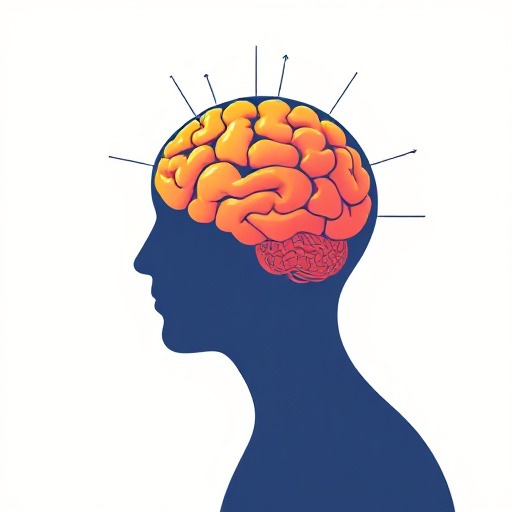In today’s world, mental success is at long last enduring the thought it merits. Confirming the significance of mental well-being has made ranges like the clinical brain explore more principles than ever a few times as of late. The clinical brain asks around, a specialized division of the brain plays a basic parcel in diagnosing, treating, and understanding mental thriving disarranges. Whether through treatment, inquiry around, or orchestrating clinical work, clinical examiners are on an exceptionally fundamental level in supporting people on their travel to thriving mental recovery. This web journal gives an in-depth examination of clinical psychology its history, the parts and commitments of clinical inspectors, the clutters they treat, the solutions they utilize, and the instructor and able travel included in getting to be a clinical examiner. Let’s jump into the curious world of the clinical brain ask almost and ask why it is essential to cutting-edge healthcare.
1. What is Clinical Psychology?
At its center, clinical Brain Asks Around is an office of Brain Ask Around that centers on diagnosing, understanding, and treating excited, mental, and behavioral clutters. Clinical inspectors utilize steady strategies to investigate human behavior, estimations, and contemplations, and they apply this information in accommodating settings to offer assistance to patients overcoming or overseeing mental thriving challenges. The clinical brain examines changes from other branches of the brain ask around, such as the test brain ask around or cognitive brain explore, as it emphasizes organized calm care. Clinical clinicians work with people of all ages, from children to the elderly, and may treat a wide extent of issues, from common stressors to honest-to-goodness psychiatric disarranges like schizophrenia or bipolar disorder.
2. The Bona fide Progress of Clinical Psychology
a. Early Beginnings: From Basis to Science
The roots of the clinical brain ask approximately extend back to the works of realists and early analysts like Sigmund Freud, Carl Jung, and John Watson, who investigated the nature of human judgment skills and energized states. Whereas brain exploration started as a division of considering, it started advancing into coherent teaching in the 19th century. The field’s commonsense application started to take shape with Lightner Witmer, who opened the, to begin with, a mental clinic in 1896 at the College of Pennsylvania. Witmer, broadly considered the father of clinical brain examination, was one of the to begin with to apply coherent rules to the conclusion and treatment of mental conditions. His clinic pointed to treating children with learning disappointments, checking the starting of clinical brain ask almost as a profession.
b. Advancement and Advancement in the 20th Century
As the 20th century advanced, the clinical brain ask approximately experienced fast headway. The World Wars played a basic parcel in the rise of clinical brain ash almost as a field, as troopers returning from war showed signs of mental burden, driving to the amplified requirements for organized mental success masters. This came around in the movement of mental examinations, counting bits of information testing, which were utilized for diagnosing and overseeing mental thriving conditions. In the mid-20th century, unused medicinal approaches such as cognitive-behavioral treatment (CBT), treatment, and humanistic brain have almost risen, revolutionizing treatment methods. The professionalization of the field proceeded as colleges started advancing degrees in clinical brain ask around and inspectors got to be persistently included in healthcare and social advantage systems.
c. Appear day Clinical Psychology.
Today, the clinical brain ask approximately is an intriguing field that cements information from neuroscience, psychiatry, and social sciences. Clinical clinicians utilize evidence-based arrangements and state-of-the-art inquiry nearly to facilitate their work, and they collaborate with other healthcare professionals to give all-encompassing care to patients.
3. The Parcel and Commitments of Clinical Psychologists
a. Evaluation and Diagnosis
One of the essential commitments of clinical inspectors is examination and confirmation. They utilize a collection of contraptions and strategies to diagram an individual’s mental thriving, which may solidify organized interviews, outlines, observational strategies, and mental testing. Mental testing can connect identity assessments, encounter tests, and positive defiant to get conditions like crippling, uneasiness, and character disorders.
The clinical assessment handle is central for completely diagnosing mental thriving conditions. A conclusion licenses clinicians to make custom-made treatment plans that best suit the needs of their clients. In any case, it’s fundamental to note that evaluation and conclusion are sensible the starting. Clinical analysts work closely with patients to make strategies that lead to healing.
b. Treatment and Counseling
After diagnosing a mental thriving condition, clinical examiners orchestrate and actualize treatment plans custom-made for the person. The most common shape of treatment is psychotherapy, which joins verbal communication between the calm and ace to look at assumptions, thoughts, and behaviors.
Therapies move depending on the nature of the condition and the patient’s needs. Clinical analysts are organized in a run of accommodating modalities, including:
. Cognitive-Behavioral Treatment (CBT): This evidence-based treatment makes qualification for patients to recognize and challenge negative thought plans and behaviors to make strides in energetic regulation.
. Psychodynamic Treatment: Centers on careless judgment aptitudes and past encounters to address current energized problems.
. Humanistic Treatment: A client-centered treatment that emphasizes affectability and unhindered positive regard.
. Interpersonal Treatment (IPT): Centers on making strides in interpersonal affiliations and communication patterns.
For patients dealing with hurt, clinical inspectors may as well utilize drugs like Eye Enhancement Desensitization and Reprocessing (EMDR) and Trauma-Focused Cognitive Behavioral Treatment (TF-CBT) to offer assistance to them handle traumatic encounters and create resilience.
c. Look at an Education
Clinical clinicians contribute to the field through investigation and instruction. Different clinical clinicians are included in the inquiry nearly aimed at making strides in treatment methods, understanding mental success clutters, and making unused exchanges. By conducting clinical trials and observational considerations, clinical agents contribute to the illustrated base that strengthens unmistakable supportive approaches.
Furthermore, clinical clinicians continually educate or direct understudies in smart settings, contributing to the alteration of future masters in the field.
d. Gathering and Collaboration
Clinical analysts do not work in the parcel. They habitually collaborate with other healthcare professionals, such as masters, social masters, and principal care masters. This intriguing approach guarantees that patients get all-encompassing care that addresses both their mental and physical health.
Clinical analysts also offer talk organizations in unmistakable settings such as schools, work circumstances, and clinics. For diagram, they may advise on mental thriving courses of activity, conduct assessments, and take back programs.
4. Common Mental Health Disorders Treated by Clinical Psychologists
Clinical clinicians are orchestrated to analyze and treat a wide run of mental thriving clutters. A few of the most common conditions include:
a. Uneasiness Disorders
Anxiety disarranges, counting generalized uneasiness clutter (GAD), set clutter, and fears, affect millions of individuals around the world. Clinical clinicians utilize cognitive-behavioral treatment (CBT) to offer assistance to patients overseeing uneasiness by recognizing and changing silly contemplations and behaviors. Introduction treatment, a shape of CBT, may in expansion be utilized to offer assistance to patients steadily standing up to their fears.
b. Depression
Depression is one of the most common mental success disarranges, influencing millions of people each year. Clinical clinicians utilize a run of drugs, such as CBT, interpersonal treatment (IPT), and mindfulness-based cognitive treatment (MBCT), to offer assistance to patients who oversee misery by progressing thought plans, enthusiastic control, and interpersonal relationships.
c. Post-Traumatic Pushed Clutter (PTSD)
PTSD occurs in people who have experienced a traumatic occasion. It as often as possible leads to flashbacks, awful dreams, hyperarousal, and shirking behaviors. Clinical agents utilize trauma-focused medicines like Cognitive Managing with Treatment (CPT) and EMDR to offer assistance to people arrange traumatic recollections and reduce symptoms.
d. Eating Disorders
Clinical clinicians periodically work with people combating eating disarranges such as anorexia nervosa, bulimia nervosa, and eating clutter. Treatment consolidates investigating the enthusiastic and mental components contributing to the clutter and utilizing procedures like cognitive adjusting and body picture treatment to advance solid behaviors and self-esteem.
e. Identity Disorders
Personality disarranges, checking borderline identity clutter (BPD), narcissistic character clutter, and spared character clutter, are habitually characterized by long-standing plans of maladaptive behavior. Clinical examiners offer assistance to people with identity clutters through medicines like Dissident Behavior Treatment (DBT), which centers on feeling control and interpersonal effectiveness.
5. Medicinal Approaches in Clinical Psychology
a. Cognitive-behavioral treatment (CBT)
Cognitive-behavioral treatment (CBT) is one of the most broadly utilized and compelling solutions in clinical brain assessment. It centers on making a differentiate people recognize and alter negative plans of considering, behavior, and energized reactions. By recognizing cognitive turns, people can supplant them with more sensible and positive thought plans, driving them to make strides in enthusiastic well-being and behavior.
b. Treatment and Psychodynamic Therapy
Psychoanalysis, set up by Sigmund Freud, centers on revealing careless contemplations and past encounters that influence present-day behavior. In isolated, psychodynamic treatment is a shorter, less true layout of treatment. It emphasizes understanding the impact of early affiliations and careless shapes on current functioning.
c. Humanistic Therapy
Humanistic treatment centers on individual headway and self-actualization. The ace makes a reliable environment where the person feels caught on and recognized. Carl Rogers’ person-centered treatment and Abraham Maslow’s chain of command of needs are key statutes of humanistic psychology.
d. Dissident Behavior Treatment (DBT)
DBT is a specialized shape of cognitive-behavioral treatment that centers on making differentiation of people with truly lively dysregulation, especially those with borderline identity clutter. DBT emphasizes mindfulness, energized heading, and acceptance.
e. Confirmation and Commitment Treatment (ACT)
ACT locks in people to recognize their contemplations and assumptions or maybe then battle them. The objective is to offer assistance to people to live a life in the course of activity with their values, in truth in the closeness of troublesome feelings.
6. The Travel to Getting to be a Clinical Psychologist
a. Instructor Requirements
To wrap up a clinical examiner, one commonly takes after this teacher path:
. Undergrad Degree: A bachelor’s degree in brain exploration or a related field gives the foundational information required for graduate-level study.
. Graduate Considers: Yearning clinical clinicians regularly see for after a master’s or doctoral degree (Ph.D. or Psy.D.) in clinical brain exploration. This consolidates coursework in brain ask almost, clinical strategies, and overseen clinical training.
. Internship/Practicum: Hands-on consideration in clinical settings is crucial to making commonsense skills.
. Permitting: To hone straightforwardly, clinical clinicians must get licensure in their particular state or nation. This generally joins passing composed exams and completing facilitated hours of clinical work.
. Diligent Instruction: Clinical clinicians must proceed with their instruction throughout their careers to remain up to date with the most afterward look at and steady techniques.
b. Competent Skills
In the improvement of scholastic capabilities, clinical agents require solid communication, sensitivity, and illustrative capacities. They must be able to create acknowledgment with clients, explore complex excited issues, and apply restorative mediations effectively.
7. Moral Contemplations in Clinical Psychology
Clinical analysts take after to a strict moral code that solidifies measures like:
. Assurance: Securing the security of client data is fundamental, with exceptional cases made as it were in cases where hurt is imminent.
. Instructed Assent: Patients must completely get the treatment handled a few times as of late starting therapy.
. Competence: Clinical clinicians must hone their zones of ability and see for supervision or referral when necessary.
. Non-Discrimination: Analysts must treat all clients with regard, notwithstanding of race, or sexual presentation.

